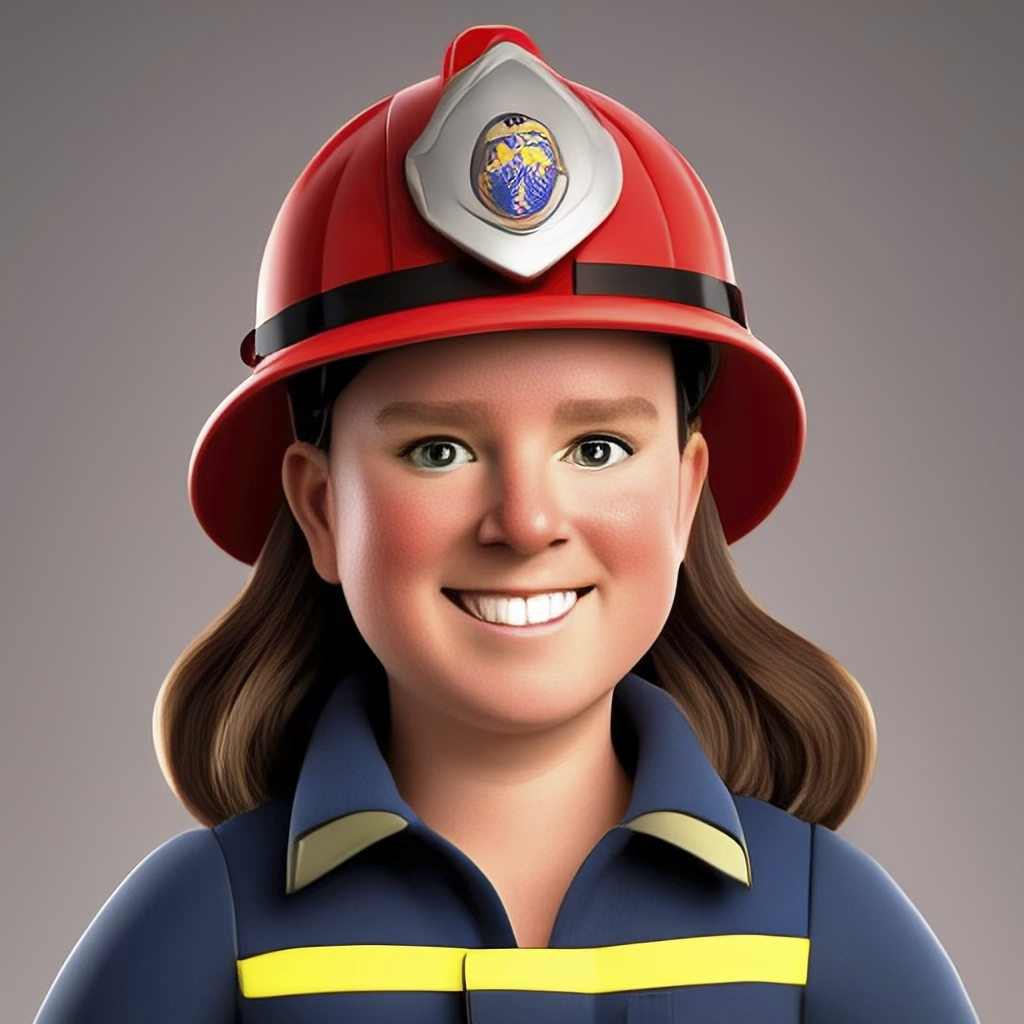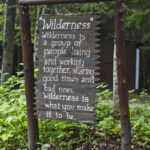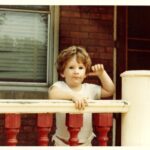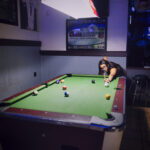When I was little, I used to imagine myself barefoot and wild, running through fields that never ended—thick with tall grass and wildflowers, the air alive with monarch butterflies swarming around me like they knew I belonged there. In those dreams the sky was a fearless blue, the sun gentle on my skin, and I could almost touch freedom with my fingertips. I was five or six when this daydream first came to me—a vivid escape I returned to whenever the real world felt cold and confining. The butterflies were as beautiful as I could imagine, fluttering just out of reach, in patterns of black, orange, and white, and I chased them with my big eyes, and pure laughter. In that imagined meadow I was innocence, and hope incarnate, a little girl unburdened by secrets, running and running and never wanting to stop.
But inevitably I would wake up—or simply open my eyes—and find myself back in my bedroom, back in the house of lies I called home. The giggles in my throat would fade to silence as I remembered to be small, and quiet again. Reality always crept in at the edges of my butterfly field: the distant sound of my parents arguing downstairs, the heavy stillness that followed like a held breath, the knowledge that in our house, truth was something dangerous. I learned early on that the smiles my family wore in public were masks—thin, blatantly obvious, and easy to crack. We pretended to be fine, and I pretended along with them, even as my heart ached for the simple honesty of my dreams. As a child I didn’t know why the butterflies meant so much to me; I only knew that in those daydreams I felt free, and in my waking life I felt anything but.
In our home, silence was the rule. I was forbidden to talk about things that truly mattered to me, especially not the truths lurking beneath our perfectly staged family photos or the tension that lived in the walls. My childhood home was a typical rural house, all white wooden siding with green shutters, and drawn curtains—outwardly ordinary, but inside it was cluttered with unspoken things. I sensed the lies long before I had words for them. There were the little lies, like everything’s fine when everything was falling apart, and there were big lies, like the one that formed around who I really was. I grew up breathing in those falsehoods, tiptoeing through them as if they were shards of glass. If I listened hard at night, I could hear the truth in the floorboards creaking or the muffled sobs my mother hid behind the bathroom door. By day, though, we all acted our parts: a family undamaged, a family that didn’t talk about feelings, or identities, or anything real.
I was a problem child in that house—problem was the word my father used, often with a scowl. The truth is I was neurodivergent, though I didn’t learn that term until much later. All I knew then was that my mind was full of voices and ideas that wouldn’t sit still. I lived my young life with an internal chorus of thoughts, questions, and imaginings that flooded my young brain at all hours. I would lie awake in bed under my flower-printed quilt, telling myself stories in the dark, because the only place I could speak was inside my own mind. In the silence of our household, my own thoughts became my comfort and my company. I was lonely, yes, but my imagination filled the void—sometimes with fantastical adventures, and sometimes with the honest conversations I longed to have with my parents but never could. In my head I could scream, cry, laugh, confess—all the things I muted during the day.
The secrecy in our family was suffocating. There were subjects I learned never to mention. We did not ask why my dad drank so much in the afternoon when his friends were around, or why my mom slept in her chair most of the time. We certainly did not mention the confusion from doctors from when I was born—though I only learned the details years later, I always sensed a peculiar tension around the topic of my birth, and early months. It was as if my very existence carried a secret I wasn’t privy to. Whenever I overheard murmurs of doctors, and my name in the same sentence, my mother would notice me and abruptly change the subject. I grew up in the shadow of a truth I could not see, a puzzle with missing pieces. That uncertainty became another thread in the web of lies and silence.
So I adapted. I became hyper-alert to the moods that filled each room. If the air in the living room felt thick after a phone call, I’d retreat to my bedroom and close the door without a word. If my father was walking around the house with heavy footsteps, I knew to make myself invisible—a ghost in my own house. I learned that silence was safety; speaking up was an invitation for pain. In a home where honesty was unwelcome, I became fluent in quiet, mastering the art of keeping everything inside, and if it had to be said, then the pages of my diary is where it would stay.
I used to write like someone pressing her hand against the glass, hoping that someone, someday, might see the girl on the other side.
—Emily Pratt Slatin
Even without words, my difference announced itself. I was different by nature, a fact that both fascinated and troubled the adults around me. In kindergarten I could already read far beyond my grade level, losing myself in books about galaxies and ancient myths while my classmates sounded out basic sentences. At seven I dared question my teacher’s mistake in front of the whole class, and while the other kids stared at me, the teacher sent me to the principals office. The principal decided to label me as a gifted child, pointing directly at me in front of my father with an index fingertip full of hate. That word—gifted—followed me through childhood, whispered by teachers, printed on evaluation reports, rarely spoken with admiration, and often times with a hint of concern. By the time I was ten, one evaluator outright called me a polymath, amazed at how I excelled in every subject she put in front of me. I remember sitting in the principal’s office as they discussed me in third person, as if I wasn’t right there. I swung my feet above the floor, more interested in the pattern of butterflies and sunflowers on her office curtains than in their discord. Yes, I was smart—frighteningly so, according to some—but that didn’t solve the real problem. In fact, being brilliant only made me more different, and different was dangerous in my world.
My father, a fiercely traditional man, didn’t celebrate my talents. To him, my advanced vocabulary combined with less-than-perfect test scores were often cherry-picked facts that were amusing when he wanted to brag to a friend, and annoying when they drew attention to how odd I was.
My father liked to say, “No point being a genius if you have no common sense,” usually after I did something that vexed him, like forget to do a chore because I was buried in my writing, or question one of his rules. My inquisitive nature—the same curiosity that annoyed my teachers—often provoked his temper. I learned to hide my light around him, dumbing myself down just to avoid his sneer and the word smartass thrown like an insult. In a thousand little ways, I was instructed to be normal: Dress like a proper child. Sit up straight. Don’t talk back. Don’t question authority. Why can’t you be like other kids? The irony was, I couldn’t be like other kids. It wasn’t rebellion for rebellion’s sake; it was simply who I was. I climbed trees instead of playing with dolls, I daydreamed about galaxies and butterflies instead of princes and weddings, and my heart… my heart loved differently, even before I had a name for it.
By the time I reached middle school, I knew that I was queer—queer and hiding, like a butterfly still in its cocoon, praying not to be noticed until it was safe. Puberty only intensified the knowledge. While other girls giggled about which boy in class they had a crush on, I felt my cheeks flush for her—the girl with the auburn braids who sat two rows ahead, the one who gave me a dimpled smile every time I lent her a pencil. I didn’t fully understand what I felt, but I knew it was real and unshakable. And I knew, most of all, that it was forbidden. In our household, being gay was not just unacceptable; being queer was nothing short of betrayal of my father’s world. I had heard his contemptuous comments often enough when someone came on TV who didn’t fit his narrow view of normal.
My father would grunt at the sight of two men holding hands in a movie, and then I’d be reminded (again) how being gay was acceptable, but only if they weren’t members of my fathers family. Or, “No child of mine would ever do that crap.” Once, as a naive twelve-year-old, I asked quietly, “What if you had a daughter who was… like that?” The look he gave me stopped me mid-sentance. His voice was low and certain: “No child of mine will ever be queer. You understand? You and your mother will be out on the street with only the clothes on your back.”
I understood. After that, I never asked again. I became an expert at not letting him see me. I trained myself to keep my eyes from lingering too long on a pretty girl at the grocery store if my parents were around. I kept my expressions neutral when my classmates talked about crushes, feigning indifference or even inventing a fake crush on a boy just to throw them off the scent. Conformity was survival; I wore it like an ill-fitting uniform, praying it would be enough to get me through each day without confrontation. But in my mind, I nurtured my true self in secret. I scribbled confessions in my diary late at night by flashlight, pages and pages of truth that I could never, ever speak aloud. That diary became my dearest confidant. In those lined pages I wrote about the butterflies—how I longed to be as free as them—and about the girls I secretly loved, and the anger I felt at having to hide every facet of my existence that made me who I was. I hid the notebook in the one place I was sure my parents would never look: under my mattress, centered in the middle. It was a fitting hiding spot—hidden in such a way that making the bed wouldn’t reveal it. The futon itself provided protection from prying eyes.
Living under my father’s roof meant living under constant threat of discovery. He ruled our home with a volatile mix of strict discipline and unpredictable rage. On good days, he would ignore me or grunt in my direction; on bad days, he’d find something about me that offended him and unleash a tirade of insults that left me shaking.
I remember once getting into the car after school, proudly clutching a ribbon I’d won in the science fair, and without warning he ripped it out of my hand and threw it out the window as we were driving home. “Wipe that smug smile off your face,” he growled. “Nobody likes a show-off.” I stared at the ribbon on the pavement, watching the growing distance between me and the ribbon, and the fleeting feeling of triumph I felt, now fading quickly into shame. To him, even my achievements were an affront if they dared make me happy. Joy was dangerous; it was often taken as rebellion.
And nothing sparked his anger like any hint of what he called deviance. As I got older, hiding my queerness became both more difficult and more critical. In high school I found a small circle of friends who were as different as I was—the artsy weird girl who quoted Sylvia Plath, the punk girl with a shaved undercut and gentle eyes, and the cute popular girl who wore pride pins on her denim jacket as a straight ally. With them I could drop the act for a few precious moments at lunch or after school. We whispered our secrets under bleachers, and behind lockers, swapping handwritten notes, and quietly validating each other’s existence. Those friendships were a lifeline, but also a liability. More than once I caught my father eavesdropping when I was on the phone, and I’d force myself to talk about homework or some innocuous topic until he lost interest. I knew if he ever heard something suspect, the consequences would be dire.
By some miracle—and careful vigilance—I managed to keep my father in the dark until I was sixteen. Sixteen, the age when many teenagers taste a first sip of independence, when they learn to drive or go to prom. For me, sixteen was the year everything came crashing down. Her name was Allegra. She had long dark hair and a laugh that made my heart do somersaults.
One rainy afternoon when my parents were supposed to be out, I started going through my shoebox of letters that Allegra had sent me while she was in South Africa as an exchange student. I curled up on the couch in the living room, watching the rain streak the windows and daring to read the letters I kept hidden in my closet. I can still recall how the her handwritten words made the house feel bright for once. In that moment, I let myself imagine that maybe someday it could always be like this—that maybe someday I could live openly in my home. But that fantasy shattered in an instant. My parents came home early that afternoon, and found me relaxing on the couch with open letters scattered on the couch, some gliding gracefully towards the floor. My father’s voice thundered from the doorway, “What the hell is going on here?”
To this day I don’t know what twist of fate brought them back hours ahead of schedule, but there he stood, red-faced and disbelieving, staring at Allegra’s letters, as I furiously tried to collect them. My mother hovered behind him, standing there in her typical apathetic existence. I froze, every muscle in my body locking up with terror. I started to stammer an apology or an explanation—I’m not sure which, because my father’s roar drowned out all other sound. “No. No. Not in my house!” he bellowed, after realizing that these were love letters from another girl my age. In two strides he crossed the room. I shrank back, and I moved to shield the box of letters without even thinking. His open hand struck me hard across the face, the force so strong I tasted blood where my teeth cut the inside of my cheek. “You little bastard,” he snarled, and with that the dam broke. Years of his suppressed suspicion and contempt came pouring out in a torrent of hateful words. Ungrateful. No child of mine. Idiot. Failure. He spat each one like venom. Homophobic slurs filled the air – words I had only heard on TV or muttered by bullies at school now hurled at me by my own father.
I wish I could say I stood strong, but I was sixteen and heartbroken and terrified. I cried out, begging him to stop, trying to reach my mother’s eyes for help. She looked away, expressionless, and monotone, throwing her hands in the air with a casual shrug, but her feet nailed to the floor. She did nothing—said nothing. My father was beyond hearing anyway. He grabbed me by the arm and flung me aside like I was nothing. I hit the corner of the coffee table and collapsed onto the rug. In the blur of the next moments, I remember him grabbing the letters, throwing them into the carboard shoe box, then tearing them up before throwing them into the fire place as I sobbed, begged, and pleaded. “Get out!” he shouted at me, shoving me out into the hallway stairs. “And you—” he turned to me, voice low with a terrifying calm, “I have no child anymore. Pack your things and get out of my house.”
There was no arguing with that voice. In a single afternoon, I ceased to be his child—I became nothing to him. Numb and shaking, I stumbled to my room, my face throbbing where he’d struck me and my vision blurred with tears. I could barely think, but I knew I had minutes at best before he might return to throw me out physically. I fumbled for a duffel bag and threw in whatever clothes and personal items my trembling hands could grab. My diary—I snatched it from its hiding spot without a second thought. Those pages were my soul and I wasn’t about to leave them for him to find and destroy. As I fled my childhood home, a strange calm overtook me. I looked back just once from the doorway: my mother stood at the base of the stairs, her face a mask of sorrow and fear, and my father… he had turned his back, already walking away as if I no longer existed. The lies and secrets had finally exploded into the open, and there was nothing left to say. No child of his would be queer, and so he had no child at all.
Outside, the rain had stopped. The air was cool and smelled of wet pavement and cut grass. I stood there alone in the driveway, the house looming behind me, and I felt a curious mixture of devastation and relief. The worst had happened; the truth was out, and I had survived it, bloodied but unbroken. A part of me even felt a glimmer of the freedom I’d always longed for. I was cast out, yes, but I was free to be myself. At that thought, I almost laughed through my tears. It wasn’t the way I wanted freedom to arrive, but it had arrived nonetheless, harsh and abrupt – like a door kicked off its hinges, I thought wryly, touching the bruise already forming on my cheek.
I didn’t know it then, but I was embarking on a journey of survival that would shape me into the woman I am today. That rain-soaked afternoon marked the end of my childhood and the beginning of something else—a metamorphosis. In nature, a caterpillar’s world has to end for a butterfly to be born; my world ended in chaos and pain, but what emerged was me, fully and truly me, at last. In the weeks and years that followed, I often reflected on how I made it through such a traumatic upbringing. There were nights I spent curled up on a friend’s couch or in the spare bed at a summer camp cabin (the first refuge I found after I was kicked out), replaying memories in my head and wondering how I hadn’t been crushed by it all. By any statistic or sad story, I should have been broken—another queer kid destroyed by an intolerant home. But I wasn’t. I was bruised and scared, yes, carrying mental scars that still throb on cold lonely nights, but I was also alive and moving forward.
The voices in my mind that once kept me company in the silence of my childhood became the voices of encouragement, reason, and sometimes humor that spurred me on when I was alone. My intellect, that brilliant flame others wanted to dim, guided me to opportunities and mentors who valued me for all that I was. After surviving a house built on lies, I made a vow that I would never again live a lie, not for anyone. I embraced the very parts of me my father wanted to erase. Each time I chose to live openly and honestly, it felt like a small defiance and a huge victory all at once.
There were times I stumbled. Trauma has a way of echoing through the years, and I’d be lying if I said I never hear my father’s voice in my head, or feel a pang of that old fear when I open up to someone. I couldn’t change the past, but I could change how I carried it.
Now, so many years later, I stand on my own land under a wide Vermont sky, and I often think of that little girl I used to be. In the spring, my favorite monarch butterflies migrate through these parts, and sometimes I’ll see some passing through the fields. I watch as their orange wings flutter gently, and I remember the dreams that sustained me through so many dark times—those childhood visions of running through sunlit fields, free, happy, and unafraid.
In a way, I am living that dream now. I have my freedom; I have truth in my life. The innocence of childhood is long gone, but in its place I’ve cultivated something more enduring: self-acceptance, hard-won and profound. My home is no longer a house of lies, but a home of honesty, and peace. There are no more diaries to hide—I leave my diary out on the kitchen table, pages open to whatever I’m writing, because I fear no judgment here. The voices in my mind now are ones of purpose and creativity, not panic. And if silence comes, it’s a gentle silence, one I can fill with music, laughter or simply the contentment of knowing I am safe.
Sometimes I catch myself twirling in the meadow at dusk, when the air is thick with fireflies (our summer stand-ins for butterflies), and I realize I am happy. I’ve built a life on my own terms, living in a small town where everyone knows me only as Emily, the openly queer, proudly neurodivergent, endlessly curious and brilliant woman—all the things I was told I shouldn’t be, I will always be. The society that once demanded my conformity has long since lost its hold on me. I walk through this world to the beat of my own heart, not anyone else’s drum. Being different, which once felt like a curse, is now my greatest treasure. It meant I had to fight harder to survive, yes, but it also means I live more authentically, love more fiercely, and see the world in colors and patterns that others can’t even imagine.
How did I survive? I ask myself that often, not in despair but in awe. I survived by clinging to that vision of freedom, by listening to the truth inside me when the external world tried to drown it out, and by never, ever giving up on myself. I survived by growing wings of resilience. Like those butterflies I dreamed about, I emerged from my chrysalis—the painful shell of my past—and when nobody was looking, I took flight. Every so often, I think back to the nightmarish day my father cast me out. It felt like an ending, and it was. But it was also the beginning of me. I want to tell that sixteen-year-old girl, shivering in the driveway, that she will go on to do things she can’t even imagine yet. She will find love that embraces her wholly. She will find home in places and people who actually care. She will turn her story of pain into a testament of survival that might even help others like her feel less alone.
I can’t go back in time to hold her hand, but I carry her in my heart always. She is the child who ran through fields of butterflies in her mind to escape a cruel reality. She is the teenager who refused to become someone she wasn’t, even when it cost her everything. And she is me – the core of me, the part that remains forever hopeful, curious, and brave. I survived for her and because of her.
Tonight, as the day’s last light fades, I step outside and breathe in the cool evening air. The grass is tall and damp under my feet. A lone butterfly, unexpected this late in the afternoon, flits past my shoulder—a small silhouette against the pinkish twilight sky. I smile up at it, a silent salute. Go on, I think, you’re free. And so am I. I walk back toward my house—my own honest home that took me a lifetime to afford outright—and leave the ghosts of the past to linger elsewhere. My story is not a sad story, not anymore. It’s a story of resilience, of a girl who was different and oppressed and afraid, but who grew up to claim the wings that were always meant for her. And with these wings, I continue to rise, continue to run through my own fields of butterflies, forever unashamed and forever free.










Leave a Reply